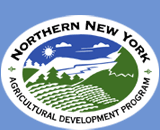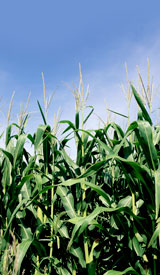January 3, 2008
Use before Jan. 19, 2008
Contact: Betsy Hodge, Cornell Cooperative Extension of St. Lawrence
County, 315-379-0607
Predators: Coping with Wild Canines
Topic of January 19 Program
Livestock producers, hunters, trappers, landowners and anyone who has
ever been interested in or bothered by wild canines will gain tips for
coping with coyotes, wolves and foxes on Saturday, January 19, 2008 in
Northern New York. Nathan M. Roberts, a doctoral candidate in the
Department of Natural Resources at Cornell University, Ithaca, NY, and
New York State Department of Environmental Conservation (DEC) Wildlife
Biologist Andrew J. MacDuff with DEC Region 6 in Watertown, NY, will be
speaking live at the Cornell Cooperative Extension Learning Farm in
Canton, NY, and via videolink to the Cornell Cooperative Extension
office in Westport, NY, and other NNY Extension sites, about the
predators that frequent New York farm fields. Their presentation is
hosted by the North Country Shepherds, a group of small ruminant
producers.
Roberts and MacDuff will discuss the history and ecology of coyotes,
wolves and foxes in New York and the current status and legal issues
related to wild canines. Roberts will have coyote and wolf pelts, skulls
and tracks at the Canton location.
Roberts says, �As predator populations increase in New York, there is
increasing interest in learning about them and how to live with them. An
understanding of the biology and history of the wildlife that inhabit
your property is important to managing them.�
MacDuff will be talking about the biology of wild canines and how human
encroachment into wild canine habitat areas has changed the predators�
behavior.
�Coyotes are now common on the landscape of New York. The public should
be aware that there are several legal options available for managing
coyotes that have become a nuisance,� MacDuff says.
Program organizer Betsy Hodge, small livestock educator with Cornell
Cooperative Extension of St. Lawrence County, says, �This is an
excellent opportunity for sheep, goat, llama and alpaca producers,
hunters, trappers, and landowners to ask questions about what to do
about the wild canines on your farms and near our homes. A recent
article published by American Sheep International says 72 percent of
livestock death losses in the Northeastern U.S. are due to coyotes.�
Hodge adds, �Trying to prevent losses to wild canines costs producers in
extra fencing and keeping guardian animals. Those costs can eat away
profit rather quickly. The January 19 workshop is a great opportunity to
learn about measures we can take to reduce losses and protect profits.�
The free program will begin at noon. Call the local Cornell Cooperative
Extension office as soon as possible to ask if a videolink presentation
will be offered in your area; some areas will include a potluck lunch as
part of the program at Canton and Westport � bring a dish to pass.
For more information, contact Betsy Hodge at
betsyhodge@twcny.rr.com,
315-379-0607. To register your interest in attending the program at the
Cornell Cooperative Extension (CCE) Learning Farm in Canton, call Anita
Morrill at CCE at 315-379-9192 x 234. To register for the videolinked
program at the Cornell Cooperative Extension office in Westport, Essex
County, call 518-962-4810.
The program is made possible by Cornell Cooperative Extension of St.
Lawrence County with support from the Northern New York Agricultural
Development Program.



